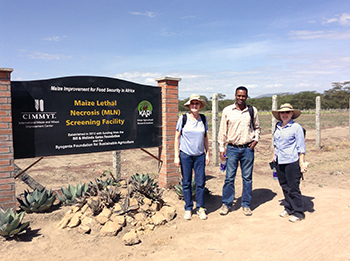Latest News Archive
Please select Category, Year, and then Month to display items
02 July 2019
|
Story Eloise Calitz
|
Photo Keagan Nkwaira
 Audience members listening attentively to the presentations at the Entrepreneurship Inter-varsity on the Bloemfontein Campus.
Audience members listening attentively to the presentations at the Entrepreneurship Inter-varsity on the Bloemfontein Campus.
The UFS continuously creates opportunities for students to develop and explore platforms where they can showcase their talents and share their innovative concepts. In the light of this, it is important for the institution to become a preferred academic knowledge partner that can conceptualise, develop, and successfully commercialise research activities, and through this foster an innovative and entrepreneurial culture that aligns to its Integrated Transformation Plan.
This is why opportunities such as the Entrepreneurship Intervarsity Competition are so important, since it encourages students to demonstrate their entrepreneurial talent, and through this connect with investors and industry leaders to start up a business.
The competition
Student entrepreneurs across the 26 public universities in South Africa were invited to submit their innovative ideas as part of a competition supported by Entrepreneurship Development in Higher Education (EDHE), in collaboration with the Allan Gray Orbis Foundation. The opportunities created through this initiative are twofold:
1. For student entrepreneurs to present their innovative ideas and businesses.
2. For universities to demonstrate their entrepreneurial talent and the ways in which they support and grow the next generation of business leaders.
The competition takes place in five stages. The process started with each student submitting their short videos and applications on the official competition site. Each institution also had the opportunity to select student entrepreneurs to take part in the competition. Fifteen students pitched their ideas during internal rounds at the UFS on 30 May 2019. Of these students, four were selected to represent the UFS at the regional rounds of the Entrepreneurship Intervarsity, where the finalists will be chosen.
The students were judged in four categories:
• Category 1: Innovative Ideas
• Category 2: Tech Businesses (existing businesses, formal or informal, undergrad or postgrad)
• Category 3: Social Impact Businesses (existing businesses, formal or informal, undergrad or postgrad)
• Category 4: General (existing businesses, formal or informal, undergrad or postgrad)
The following UFS entrants were selected to take part in the regional finals:
• Christopher Rothman for his liquid yeast culture that can be used in the fermentation of beer.
• Driaan-Lou Kemp for his patented water-saving device.
• Grace Mthembu for her electricity-saving system.
• Martin Clarke for his idea to use drone technology for the mining industry
Maize breeder rewarded for his research to enhance food security in Africa
2016-08-26

Prof Maryke Labuschagne from the UFS Department
of Plant Sciences, Berhanu Tadesse Ertiro, a
postgraduate student in Plant breeding at the UFS,
and Dr Peg Redinbaugh of the US Department of
Agriculture in Wooster, Ohio.
Photo: Supplied
Ethiopia is one of the African countries, deeply affected by food insecurity. Berhanu Tadesse Ertiro, a citizen from Ethiopia started his career - after graduating with his undergraduate degree in 2003 - as a junior maize breeder. Today he is pursuing his doctorate degree in Plant Breeding at the University of the Free State (UFS).
His research had made some great strides in contributing to food security in Africa. He recently received a fellowship from the prestigious Norman E. Borlaug Leadership Enhancement in Agriculture Program (Borlaug LEAP).
This fellowship is only awarded to students whose research has relevance to the national development of the student’s home country or region. The aim of these fellowships are to enhance the quality of thesis research of graduate students from developing countries who show strong promise as leaders in the field of agriculture and related disciplines.
Low soil fertility a major maize production constraint
Berhanu is also a visiting student at the International Maize and Wheat Improvement Center (CIMMYT) in Kenya, where he is running field experiments for his PhD thesis dissertation. His research focuses on Nitrogen Use Efficiency (NUE) and Maize Lethal Necrosis (MLN) disease tolerance. Low soil fertility and MLN are among the major maize production constraints in eastern and southern Africa, where maize is staple food.
Such hybrids have the potential to contribute greatly
towards food security among farmers and their
families through increased productivity.
The use of new tools could increase breeding efficiency and reduce the time needed for the release of new stress tolerant hybrids. Such hybrids have the potential to contribute greatly towards food security among farmers and their families through increased productivity. Berhanu is looking at the feasibility of genome wide selection for improvement of NUE in tropical maize.
Fellowship includes mentorship and supervision across borders
The programme supports engaging a mentor at a United States university and Consortium of International Agricultural Research Centers (CGIAR). During his fellowship, he will be supervised and mentored by Prof Maryke Labuschagne of the UFS, Prof Rex Bernando, a professor of Corn Breeding and Genetics at the University of Minnesota and Dr Biswanath Das of CIMMYT, Kenya.
As a LEAP fellow, Berhanu was invited to attend the 30th Annual World Food Prize events to take place in October 2016, in Des Moines, Iowa. The week will include his attendance at the Board for International Food and Agricultural Development meeting, participation at side-events at the Borlaug Dialogue International Symposium and the World Food Prize.